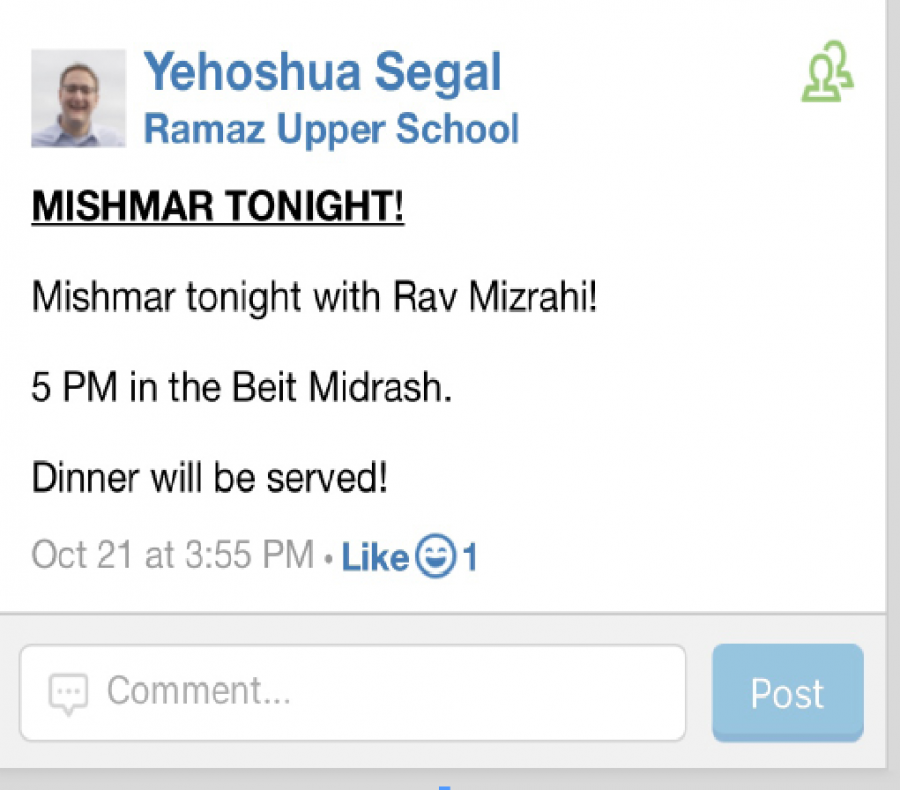What’s Up With Mishmar?
Torah, food, and up to ten extra points in Tanakh and Talmud class: what could be better than that? Every day, the school gives an opportunity for students to listen to either Rabbi Manu on Mondays, Rabbi Mizrahi on Thursdays, Rabbi Weiser on Wednesdays, or one of the school’s Judaic studies teachers on Tuesdays give a dvar Torah. Last year, mishmar on zoom made it very easy for people to participate, but with a switch to in person mishmar, there has been a decrease in participation. This lack of involvement raises a big question: should mishmar continue in person or on zoom?
Rabbi Immanual Hass, known as “Manu” by Ramaz students, shared his thoughts on the significance of mishmar saying that “learning Torah without thinking about grades reflects a stronger commitment to learning. It changes the quality of the learning because it is not forced upon you and you made the choice to be there.” Rabbi Hass believes that one of the reasons mishmar is so successful at Ramaz is because, “students are intellectually curious and their interests spark debates.” He continued saying that, “one of the reasons I love Ramaz is that even at the end of our long school days, students have the energy to think and analyze.” Also, the less contextual nature of mishmar learning makes it a very different experience than learning in school. Rabbi Hass believes that although, “some people like textual learning, the problem with textual learning is that you are using your brain to analyze and think without giving your brain time to absorb the information.” When thinking of what to teach for mishmar, Rabbi Hass relates his classes to that week’s parsha or approaching holiday. His reasoning is that he thinks “it is important for the Jewish mind to be in sync with the Jewish time of the year.”
The question of in person versus zoom mishmar was addressed at a mishmar meeting. In this meeting, Rabbi Hass advocated for mishmar on zoom because it is better to have more students join the learning, but the other teachers were adamant about having it in person this year. The main argument in favor of in person mishmar is that “there are less distractions in person, which contributes to a better environment to learn Torah.”
Now, it seems that mishmar is going to continue in person which, although possibly inconvenient, comes with a lot of pros. For starters, in person mishmar means food. Learning Torah with a slice of pizza or a schnitzel sandwich is undoubtedly a better experience than learning Torah through zoom on an empty stomach. Also, in person mishmar inspires more lively discussions. Even though more people joined the mishmars on zoom, there are many distractions when at home whereas in school students are more inclined to listen, which causes better discussion and a more enjoyable learning experience. With mishmar held everyday, it is definitely worth it to stop by for some Torah, food, and a couple quick points.



